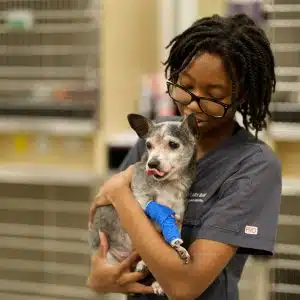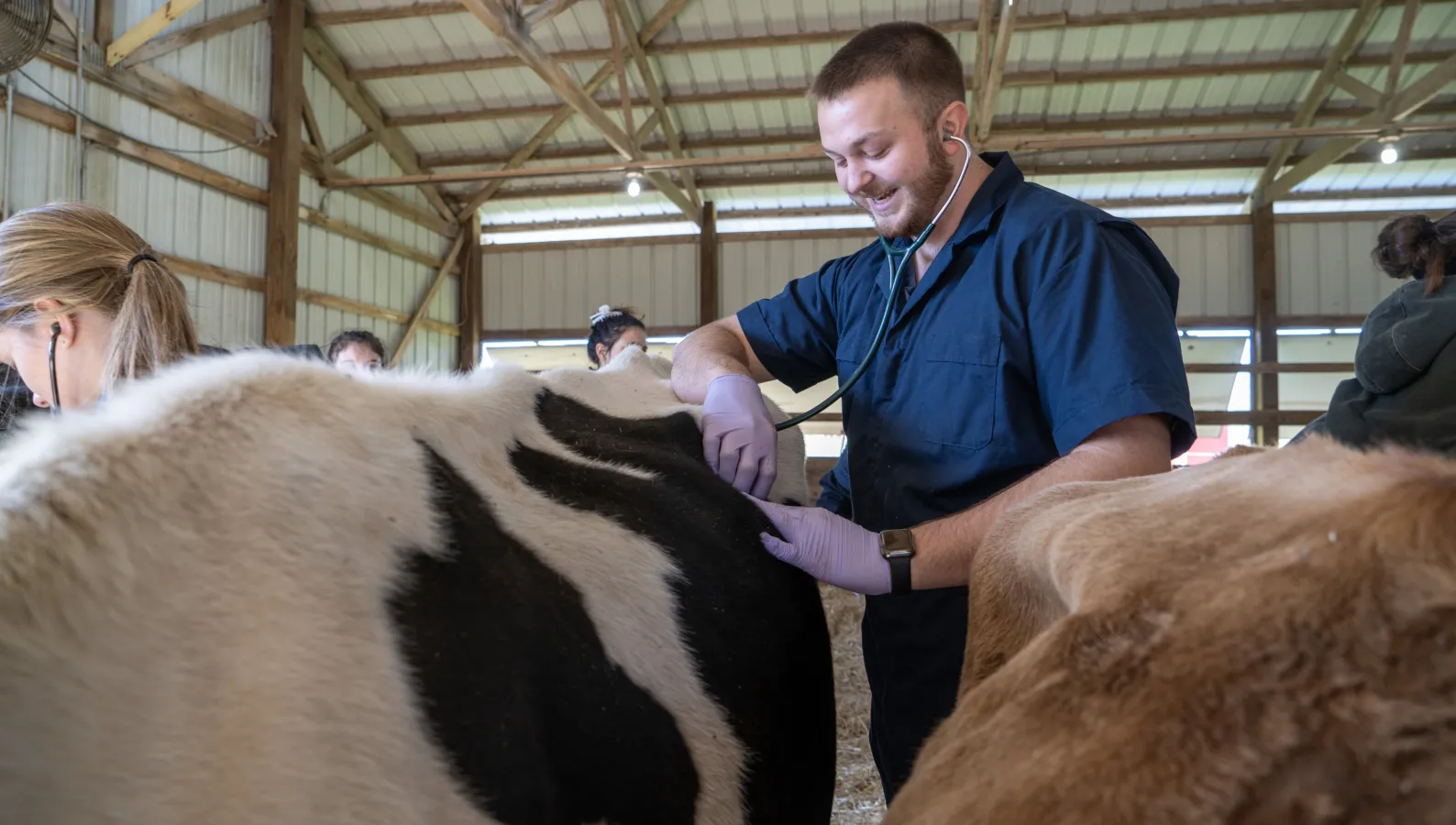Exactly How a Vet Oncologist Can Assist Improve Your Animal's High quality of Life
Vet oncologists focus on the diagnosis and treatment of cancer in animals, playing a critical function in boosting their top quality of life. They produce customized therapy strategies that deal with the unique demands of each animal. Through innovative diagnostics and targeted therapies, these experts intend to handle signs and symptoms effectively. The journey does not end there. Checking out the complete spectrum of care choices exposes more concerning exactly how these specialists can make a considerable distinction.

Understanding the Duty of a Vet Oncologist

In addition to diagnosis, veterinary oncologists develop comprehensive treatment methods customized to the demands of each pet. These techniques might consist of chemotherapy, radiation therapy, and surgical treatments, targeted at not only expanding survival yet additionally enhancing the overall top quality of life. Additionally, they give palliative care, concentrating on discomfort management and convenience for pets facing terminal diagnoses. By collaborating with pet dog owners, veterinary oncologists guarantee that pet dogs get the most compassionate and reliable care feasible during their cancer journey.
Customized Treatment Prepare For Your Pet
When a pet is detected with cancer, establishing a customized therapy plan comes to be vital for resolving their special needs and scenarios. A vet oncologist meticulously assesses the type of cancer, its stage, and the overall wellness of the family pet. This extensive analysis allows for the creation of a tailored approach that may include a mix of radiation, chemotherapy, and surgical treatment treatment.
The oncologist likewise takes into consideration the pet dog owner's preferences and way of life, guaranteeing that the strategy aligns with their goals for their pet's care. Veterinary Oncology Services. Treatment plans are not static; they are on a regular basis evaluated and readjusted based on the pet dog's response and any type of emerging demands. By concentrating on individualized treatment, veterinary oncologists aim to boost the effectiveness of therapies while keeping the family pet's quality of life. This tailored strategy promotes a better understanding of the disease, encouraging family pet owners to make enlightened decisions regarding their beloved friends' health
Managing Symptoms and Adverse Effects
Handling the signs and negative effects of cancer cells treatment is a crucial part of vet oncology. Vet oncologists make use of a range of strategies to reduce pain and enhance the general well-being of pet dogs going through treatment. This might include making use of anti-nausea drugs to fight vomiting and loss of hunger, which prevail adverse effects of radiation treatment. Discomfort administration is also focused on, typically including the prescription of analgesics customized to the pet's particular requirements.
Additionally, oncologists may advise nutritional modifications, incorporating high-quality, conveniently digestible foods to sustain nutritional intake. Checking blood work is crucial to spot any type of unfavorable reactions to therapy early, enabling for prompt treatments. Routine follow-ups enable the vet team to analyze the pet dog's feedback to therapy and make needed adjustments. With these detailed techniques, vet oncologists aim to improve the lifestyle for family pets facing cancer cells therapy challenges.
Palliative Treatment and Comfort Actions
Palliative care plays an essential function in enhancing the high quality of life for pets detected with cancer, concentrating on convenience and psychological support instead of medicinal therapy. Vet oncologists focus on discomfort administration, assuring that animals experience very little discomfort throughout their illness. This includes using analgesics, anti-nausea medications, and other therapies tailored to private requirements.
In enhancement to pharmacological treatments, environmental modifications can greatly improve a family pet's lifestyle. Developing a calm, comfortable area with soft bedding and easy access to food and water can minimize tension. Nutritional assistance is likewise important; oncologists may advise customized diet regimens that accommodate the animal's requirements and preferences.
Psychological linked here support for both the pet dog and its proprietors is important. Vet oncologists provide assistance on dealing methods, assisting households navigate the emotional challenges that come with a cancer cells medical diagnosis. Ultimately, palliative treatment purposes to assure that family pets receive the dignity and comfort they are worthy of.
Collaborating With Your Routine Veterinarian
Partnership with a normal veterinarian is important for optimizing the care of pet dogs with cancer, as this collaboration guarantees an extensive approach to treatment and top quality of life. The routine vet normally has a detailed understanding of the family pet's case history, which is important when developing a treatment strategy. They can effectively communicate with the veterinary oncologist, making sure that all aspects of the pet dog's health and wellness are taken into consideration.
This partnership permits collaborated treatment, which might consist of routine check-ups, keeping an eye on negative effects, and changing medicines as required. Routine veterinarians can also supply emotional support to pet dog owners, assisting them navigate the intricacies of cancer treatment - Veterinary Cancer Specialist. By working carefully with veterinary oncologists, they can promote a smooth shift in between various kinds of treatment, ensuring that family pets receive one of the most effective therapies while preserving their convenience and wellness throughout the procedure. Together, they enhance the total lifestyle for pet dogs dealing with cancer
Frequently Asked Questions

What Types of Cancers Do Vet Oncologists Usually Treat in Family Pets?
Vet oncologists usually treat various cancers in pets, including lymphoma, mast cell lumps, osteosarcoma, and soft cells sarcomas. These specialists use sophisticated diagnostic techniques and treatment alternatives to deal with the particular needs of each pet.
Exactly How Can I Prepare My Family Pet for a Veterinary Oncology Visit?
Preparing a pet dog for a veterinary oncology consultation entails event clinical documents, noting symptoms, and preparing concerns. Guaranteeing the read the full info here animal is comfortable and tranquil during traveling can additionally considerably boost the total experience and examination effectiveness.
Exist Any Alternative Treatments for Pet Dogs With Cancer cells?
Different treatments for animals with cancer cells typically consist of acupuncture, herbal medication, and nutritional assistance. These techniques may complement conventional treatments, potentially boosting total wellness and supplying encouraging care throughout the animal's cancer journey.
Just how Commonly Should My Animal See the Vet Oncologist?
The frequency of visits to a veterinary oncologist generally depends upon the pet dog's certain condition and treatment strategy. Regular analyses may be recommended every few weeks or months to check progression and readjust treatments accordingly.
What Expenses Are Connected With Veterinary Oncology Solutions?
Costs connected with veterinary oncology solutions can differ extensively, including first appointments, diagnostic examinations, treatment plans, and recurring care. Veterinary Cancer Specialist. Family pet click over here now proprietors must prepare for prospective costs that reflect the intricacy and duration of the treatment required
Vet oncologists specialize in the medical diagnosis and treatment of cancer cells in pets, playing a vital function in boosting their quality of life. Lots of pet dog owners may not be familiar with the ins and outs of vet oncology, understanding the role of a vet oncologist is necessary for managing cancer in animals. The oncologist likewise thinks about the pet dog proprietor's preferences and lifestyle, guaranteeing that the strategy lines up with their goals for their pet dog's treatment. By concentrating on personalized care, vet oncologists aim to boost the performance of therapies while maintaining the animal's high quality of life. By functioning very closely with veterinary oncologists, they can facilitate a smooth shift between different kinds of treatment, guaranteeing that pet dogs obtain the most efficient treatments while preserving their comfort and well-being throughout the procedure.